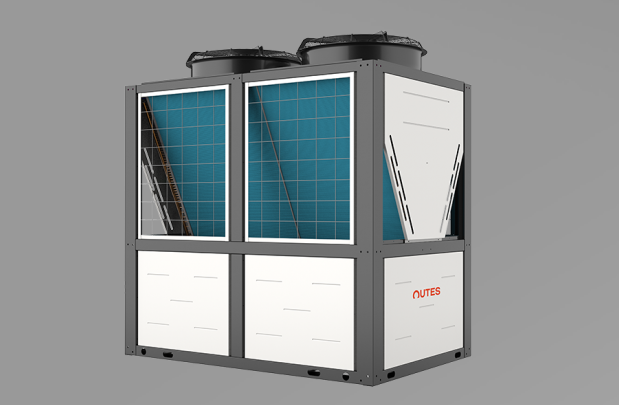A Guide to Commercial Heat Pumps for Business
Commercial heat pumps take natural thermal energy from the air, ground, or water and turn it into heat that can be used for hot water and heating systems. They are an alternative to the traditional gas boilers that are currently used to heat business properties up and down the country.
How does a commercial heat pump work?
Heat pumps operate by moving heat from one location to another, eliminating the need to burn fuel for heat generation. Businesses have access to three primary types of heat pumps:
- Air source heat pumps in commercial settings function by extracting heat from the air and transferring it to a fluid. This fluid is then directed through a heat exchanger to heat water for taps, showers, radiators, and other heating systems.
- Ground source heat pumps for commercial buildings operate by circulating a blend of water and antifreeze through a buried loop of piping on the business premises. The heat from the ground is absorbed into the fluid and subsequently transferred through a heat exchanger into the heat pump.
- Water source heat pumps offer a viable option for businesses located near large bodies of water to harness energy from such sources. There are two main types of water source heat pumps:
Open-loop system: This system is suitable for ponds and wells, where water is circulated through the pump to extract heat for the heating system before being released back into its source.
Closed-loop system: Designed for water depths of at least eight feet, this system involves sealed pipes filled with antifreeze placed beneath the surface. As the antifreeze circulates through the pipes, it absorbs heat from the water body and returns to the heat pump for further utilization.
What are the benefits of a commercial heat pump?
There are a number of business benefits that come with installing a commercial heat pump, including:
- Reduce your carbon footprint and bolster your eco-friendly credentials by opting for heat pumps, which are considered a more environmentally friendly alternative due to their lower CO2 emissions.
- Decrease your business energy expenses. Instead of relying on fossil fuels and being subject to the fluctuating costs of business gas, you'll only be responsible for the electricity consumed to operate the heat pump.
- Enjoy reduced maintenance costs. Heat pumps incur lower maintenance expenses compared to gas boilers, potentially saving you money on service and upkeep. Additionally, heat pumps boast a longer lifespan than gas boilers.
- Versatility as a cooling system. Unlike gas boilers restricted to heating, heat pumps can be adapted to function as cooling systems during warmer seasons.
- Enhance safety in heating. Heat pumps operate without relying on gas, eliminating the risk of carbon monoxide leaks on your premises.
What are the problems with heat pumps for business?
While the advantages likely outweigh the disadvantages, it's important to consider the following issues associated with commercial heat pumps:
1. High initial cost: The upfront investment for heat pumps can range from £4,000 to £35,000, depending on the system type, which is considerably higher than the cost of a gas boiler.
2. Installation complexities: Commercial heat pumps can be challenging to install and may not be suitable for all types of business premises.
3. Cold weather efficiency: Depending on the installed system, you may encounter reduced efficiency of your heat pump in colder weather conditions.
Will a heat pump help your business save money?
Despite the initial high cost, heat pump water heater prove to be significantly more efficient than gas boilers, boasting an efficiency rate around four to five times higher. For instance, while an old gas boiler typically operates at approximately 60% efficiency, a new condensing boiler can achieve up to 92% efficiency. However, the efficiency of heat pumps surpasses these numbers, reaching an impressive rate of about 400%.
The explanation for a heat pump's efficiency exceeding 100% lies in its ability to transfer heat rather than generate it. This implies that the heat output efficiency is greater than 100%.
By opting for a heat pump, your business can save money by reducing its energy bills. Furthermore, combining a heat pump with solar panels can potentially make your business premises nearly self-sufficient.

评论
发表评论